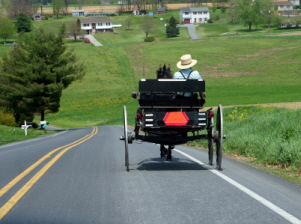The Genographic Project is probably the largest genetic genealogy project in the world. For $99, the project will sequence seqments of either your mtDNA or your Y chromosome for addition into their publicly available database. The goal of the project, with ten research centers around the world, is to “map humanity’s genetic journey through the ages,” and to “address anthropological questions on a global scale using genetics as a tool.” There has been a huge response to this project, and they just released their first research paper using the results they have collected to date:
“Family Tree DNA is proud to announce that the first paper resulting from data collected through the Genographic Project has been published today at the PLOS GENETICS.“The Genographic Project Public Participation Mitochondrial DNA Database†can be found at http://genetics.plosjournals.org and it will be uploaded to the Family Tree DNA public library as well.



 Yesterday was another big day for genetic genealogy, with two major announcements.First, as I have previously mentioned, Ancestry.com teamed up with Sorenson Genomics to offer DNA testing.The results of that testing can be, at the owner’s discretion, tied into a new DNA database as well as their massive collection of genealogical source materials.Here’s the official announcement from PRNewswire: “
Yesterday was another big day for genetic genealogy, with two major announcements.First, as I have previously mentioned, Ancestry.com teamed up with Sorenson Genomics to offer DNA testing.The results of that testing can be, at the owner’s discretion, tied into a new DNA database as well as their massive collection of genealogical source materials.Here’s the official announcement from PRNewswire: “